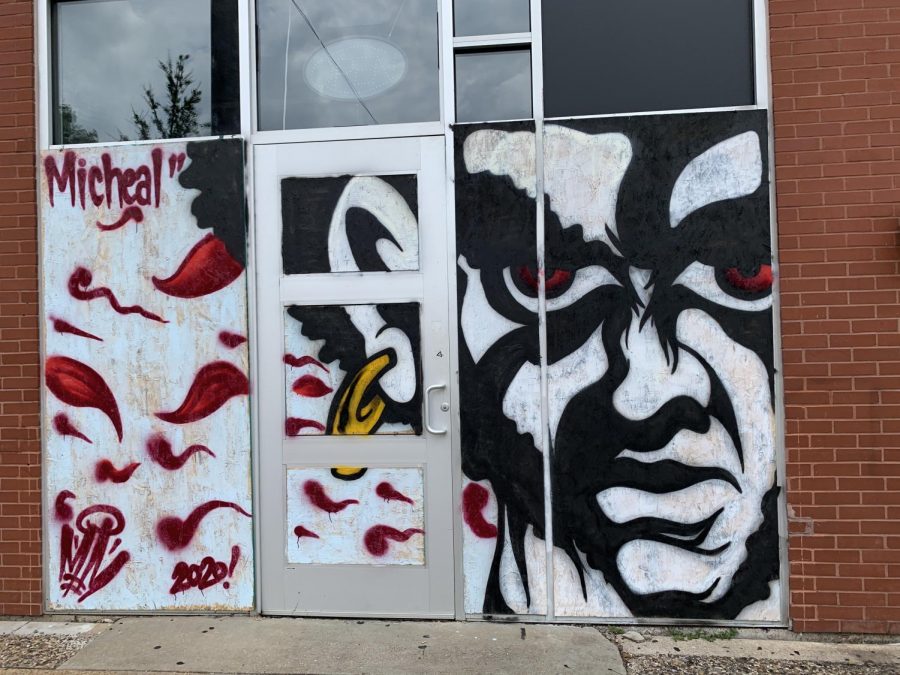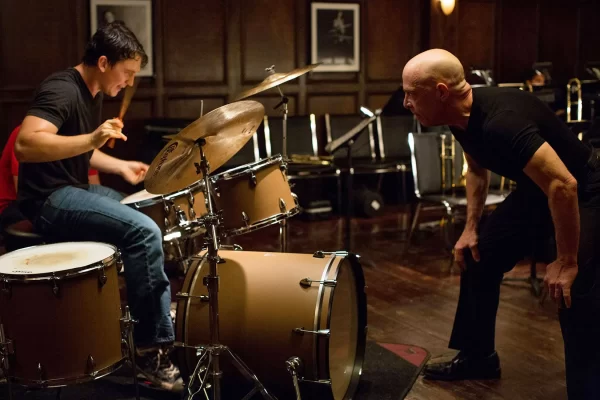Why We Needed Black History Month This Year More Than Ever
Black History Month is more important now than ever before, as racial injustice becomes a worldwide issue.
Black History Month has been and continues to be a very passionate subject of debate and opinion. There are those who believe that the holiday is unnecessary and those that believe in its importance. However, there is one thing that everyone can, or at the very least should, completely agree on; good or bad, history must be remembered, or the lessons that have been learned in the past will be forgotten. The past year has been one full of negativity, especially with how certain events have affected the African American community, and Black History Month was a vital holiday to celebrate, this February more than ever.
The development of Black History Month began all the way back in September of 1915, when Harvard graduate Carter G. Woodson and the pro
minent minister Jesse E. Moorland founded what is known today as the Association for the Study of African American Life and History (ASALH). This organization was and still is committed to the research, promotion, and remembrance of the accomplishments done by those of African descent, and in 1926 the group sponsored a national Negro History Week. Communities and schools who were inspired by this event organized local celebrations, and in the decades that followed the week developed into an entire month of festivity, due in part to the civil rights movement. Finally, in 1976, President Gerald Ford recognized Black History Month as an official holiday, and it has been celebrated by African and non-African citizens around the world.
In the following years, every February was dedicated to the remembrance and celebration of black history. However, there was always bound to be people who would question its importance; all lives matter, all people matter, so why is it that people of African American descent are being treated differently? This questioning is expected of course, considering the goal is to achieve complete and utter equality across all races, genders, sexualities, etc. However, this questioning is built off of a lack of education and understanding. The celebration and praise towards the African American community is not there to glorify them over others; it is there because they are still viewed as less than o
ther races, in many different ways, and the praise is a necessary step that must be taken so they are viewed as equal.
One way that society attempted to lift up the black community was through the Black Lives Matter movement, and a great deal of negativity surrounds this movement, due to circumstances that will not be analyzed in this article, but the main intention behind the movement was pure. It can be viewed in a similar way as feminism; the true message behind the movement is one of peace and equality, and although there have been groups of people with toxic ideals trying to taint that message, it still holds true. However, what cannot be denied is that there was in fact toxic behavior within this moveme
nt, and generally a lot of toxicity surrounding equality, politics, health safety, etc., in all of last year. That is why this year, even though we are all still confused, scared, and unsure, should be one where we repair
all that has been broken and heal from the carnage of 2020; starting with the African American community.
The students of Holt have come together and shared their thoughts on the importance of Black History Month. There were several thought provoking and passionate responses.
One response pointed out the importance of remembering the bad parts of history.
“Black History Month is so important, because it represents the struggles [in the black community] from the beginning of time until now. Recognizing it isn’t wrong, it’s showing we care. We can’t change the past, but we can improve the future,” Brooklyn Johnston (‘24) said.
Another student shared their opinion on how the world has been affected by the holiday.
“[Black History Month] played a big part in shaping the America we know today, along with encouraging other countries to do the same thing. Also, as the saying goes, ‘those who fail to learn from history are doomed to repeat it,’” an anonymous student said.
Even though each of these accounts were riveting and moving in their own right, there was one response that stood out amongst them. Mya Robinson (‘21) bravely shared her opinion, and with it a very personal and powerful story.
“Of course, all throughout my life I have seen and been a victim of racial discrimination. When I was younger I didn’t really understand nor notice it, but as I’ve gotten older it is blatantly obvious that I can sometimes be discriminated against because of the color of my skin. During my 7th grade year, we took a field trip to the movie theaters, and my parents gave me twenty dollars for snacks.
“When we got to the theater, I stood in the snack line. There were boys in front of me who were joking around and stealing. So I grabbed what I wanted and debated on what to get. After I put back what I didn’t want, I went to the counter and paid, then I headed into the theater with my friends to find seats.
“A teacher from a different team called me out and told me I was needed for something, so I went with her. She took me to the snack counter and asked the lady behind the counter, ‘Was it her, the one you said was stealing?.’ I was so shocked by the accusation, because my parents had taught me better than that. The lady at the counter said, ‘I never said she was stealing, I just said she was being suspcious grabbing and putting stuff back like that.’ The teacher let me go after they both realized that I didn’t steal anything, and that I had a receipt, and they had my friend as a witness to prove that I paid. However, neither one of them apologized to me.
“After I was let go, I went to the bathroom and cried. I missed the first fifteen minutes of the movie. I knew back then that she had only seen a little black girl and assumed the worst. From that day forward I have just looked at the world differently, and my perspective changed from an optimistic person to a realist.”
Robinson continued on to share her thoughts and feelings on Black History Month.
“I think Black History Month is important because it shows we do not believe in the same negative values people once held against black people; it shows that people know, in the past, blacks were treated unfairly due to incorrect racial biases, and now we are trying to learn from others’ mistakes so we can do better. For me personally, Black History Month is important because throughout our highschool career we learn about world history, U.S. history, and U.S. government, but during all of those courses we never take a large amount of time to learn history about those who looked like me. Of course, we know about slavery, but it goes deeper than that. We trace the history of white people back to Europe and the monarchical ruling days, but we never take the time to learn about African tribes, African Europeans, or Afro Latinas. Black History Month allows me to connect and learn more about my ancestors and where I came from.”
It simply could not have been phrased any better. The African American community’s history must be remembered, their accomplishments celebrated, otherwise they will have no way to be seen by everyone as equal, and as much as some would like to believe, that equality has not yet been achieved. Black History Month is important, this year more than ever, and black history must be seen, heard, and talked about; it is essential for our society’s growth. The ideal is to one day see a society in which African Americans can live without fear of discrimination or predjudice, and as long as Black History Month is understood and celebrated each year, that hope will come to fruition.













Anonymous • Sep 22, 2021 at 9:23 AM
I find the quote stating, “[Black History Month] is really important…” to be quite disagreeable and frankly quite wrong. It is true that African American citizens have gone through some struggles to get to the level of freedom that they experience today, but I think it is important to remember that we are all Americans, and as Americans, part of our identitiy is that those before us fought for our freedoms in first the Revolutionary war, and then fought to maintain these rights and freedoms through multiple battles and wars from then on. Stating that white people have had their rights “given to them” neglects those who have died for the rights of not just Caucasians, but Blacks, Asians, Hispanics, and others. I have no issue with the claim that African Americans may have had it harder than others, but making a claim that whites have had no struggles is appalling and wrong.
A'Nija Hughley • Mar 10, 2021 at 7:58 AM
Great article!